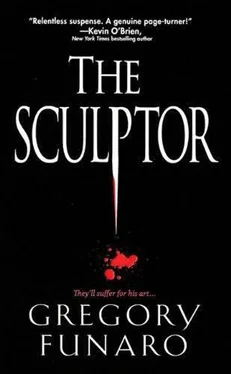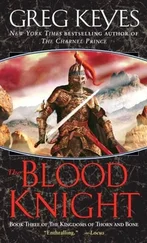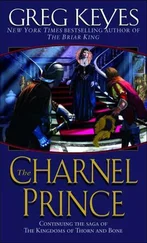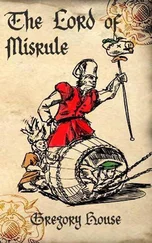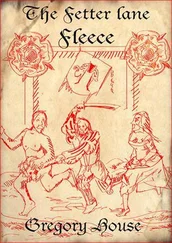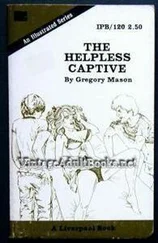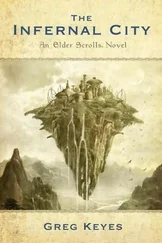“We see such a dynamic in Michelangelo’s sculptures as well-the majority of which are male . The figure of the woman is only incidental for him, and Michelangelo’s lack of understanding of the female anatomy-such as his awkward placement of breasts and the rendering of female figures with large, manly frames-is evident throughout his career. For example, in another one of his famous sculptures, the Rome Pietà , we see the Madonna not only with oddly shaped breasts and an unusually large frame out of proportion with the Christ figure, but the entirety of her body is covered in heavy robes-almost as if Michelangelo is hiding her.”
“Yes,” said Markham. “You have some lovely photographs of it in your book.”
“I’m sorry if I’m getting off track, Sam, but what I’m saying is that the male figures in Michelangelo’s work are always exquisitely rendered with a kind of detail and authenticity out of proportion to the female-detail that indisputably proves the artist’s obsession with the male anatomy. And so it is also through such flawless rendering that we see the classical dynamic of ancient Greece played out not only in the final execution of Michelangelo’s sculptures, but also in his experience of sculpting them, for it was only through his work that Michelangelo could come close to communing with what he saw as divinely inspired beauty-a beauty, for him, accessible only by the sculptor’s hand.”
“So, if I follow you, you’re saying that, for Michelangelo, it was as much the experience of carving as it was the finished product?”
“Yes. Think of the torment the artist must have gone through, born as he was with an inherent appreciation, an inherent love for the male-both spiritually and sexually. A love that he saw bestowed upon him by God and intrinsically woven into the very nature of his gift-that miraculous gift, given only to the sculptor, to release the figures slumbering in the stone. And thus it was the very nature of this gift that was both Michelangelo’s sanctuary and his prison. This was a gift bestowed upon him by a God who at the same time forbade him to commune with his figures in the flesh-a God who condemned the kind of deep, spiritual love that Michelangelo so desperately craved with Tommaso Cavalieri; a God who gave Michelangelo the power to create beauty, but, in essence, not the permission to touch it.”
“So then Michelangelo is also speaking about himself. That he, too, is a figure trapped in the stone-a figure imprisoned in the marble shell of his homosexuality, and that only through the act of carving could he, for lack of a better phrase, make love with another man.”
“You could put it that way, yes.”
Markham was silent for a long time-a silence in which Cathy thought she could hear the special agent’s brain ticking; a silence that made Cathy so uncomfortable that she told Markham the gist of her Socratic dialogue on the sofa-neglecting, of course, to tell him that he had played Socrates to her Gorgias.
“Yes,” said Markham when she had finished. “In your book you quite often contrast Michelangelo’s artistry, as well as the world of the Italian Renaissance, with the artistic output of our culture today-specifically with regard to the media. How it dominates our culture, how it dictates what is important, but most significantly, how it physically shapes our intellect-literally, our physiological capacity not only to process information, but also to appreciate beauty. You speak of the detrimental effects of the Internet, of television and movies, and how they are altering, actually conditioning our brains not only to focus for shorter periods of time and with less efficiency, but also to accept a standard of excellence that gets progressively lower and lower. In essence, you are saying that, today, the quality of the marble from which we as human beings are shaped is meager stuff compared to the metaphorical marble of Michelangelo’s time.”
“That’s a lovely way of putting it, yes.”
“And only the sculptor’s hand-whether it’s Michelangelo’s or the twisted psychopath’s who murdered Campbell and Wenick-can free us from the marble prison that is the media. Our society today, we children of this celebrity infatuated culture, we are the figures slumbering in the stone.”
“Yes, Sam. That’s exactly what I’m saying.”
“That would explain why he chose Campbell, and perhaps even that little boy. Or maybe, as you experienced in your examination of the statue, why he chose to portray them as Michelangelo’s Bacchus in the first place; a sculpture in which the god, the celebrity -by virtue not only of his size and orientation but also of the mythology he carries with him-dominates our thoughts.”
“It would also explain his contacting me via the quotes, don’t you think? Like the sculpture, the medium itself was part of his message-just as the quote at the beginning of my book was part of mine. In essence, the killer was saying to me, ‘I understand.’”
“And so the inscription on the base of the statue could just be the killer’s way of simply saying, ‘Thank you.’”
“Yes, I guess it could.”
Sam Markham was silent again-the flipping pages on the other end of Cathy’s cell phone the only sound.
“Thank you for calling me, Cathy,” he said finally. “You can’t imagine what a help you’ve been. I’ll be back and forth between Providence and Boston over the next few days while the autopsies are being performed. Procedure dictates that we collect as much evidence as possible and then send it off to our labs at Quantico for analysis. The way these things go, it’s better for the families to get their loved ones interred as soon as possible. I’ll be in touch. Try to get some rest, okay? Good night, Cathy.”
“Good night, Sam.”
Click.
Cathy stood in the kitchen feeling more at ease than she had all day, and despite the topic of their conversation, Cathy hated to admit that she had actually enjoyed talking to the FBI agent.
Must be the tea, said the voice in her head, and Cathy promptly told it to fuck off.
The Polks’ phone rang, and Cathy could hear Janet in the living room telling Steve Rogers that yes, Cathy was there, and no, she didn’t want to talk to him. Prick must have seen me on TV, Cathy thought. Then she smiled, for the scene playing out in the living room was one she had seen many times over the last few months. Yes, Janet knew all too well that, no matter what the occasion, when Cathy retreated to her home the last person in the world she would ever want to speak with was Steve Rogers.
“For the last time, Steven,” she heard Janet say. “I’m not going to give you her number. Now good night!”
Cathy returned to the living room to learn the Associated Press had confirmed that Tommy Campbell and Michael Wenick had indeed been found painted and posed like Michelangelo’s Bacchus . And as Janet and Dan followed the details with shock and disgust, Cathy was secretly relieved when nothing was mentioned about the little dedication to her at the base of the statue. However, after CNN showed a picture of Michael Wenick on a split screen next to a close-up of Michelangelo’s satyr, the reality of what had happened that day once again came rushing back to her.
And tea or no tea, Cathy knew that, when the lights were out in the Polks’ guest room, it was the marble face of Michael Wenick that she would see hovering over her in the darkness.
It was not Michael Wenick that Sam Markham saw when he closed his eyes that night, or even the Bacchanalian visage of Tommy Campbell. No, there in the gloom of his Providence hotel room was only his wife Michelle. She came to him as she usually did, her presence inextricably linked with his solitude; a jigsaw puzzle of memory-some of which was jumbled into fuzzy pieces, while other parts fit together in segments of some larger picture, the border of which was never quite finished. Tonight, however, the memories of his Michelle brought with them the dull but crushing pain of longing-a pain that was always there for Sam Markham, but that most often lurked only in the deepest catacombs of his hardened heart.
Читать дальше
